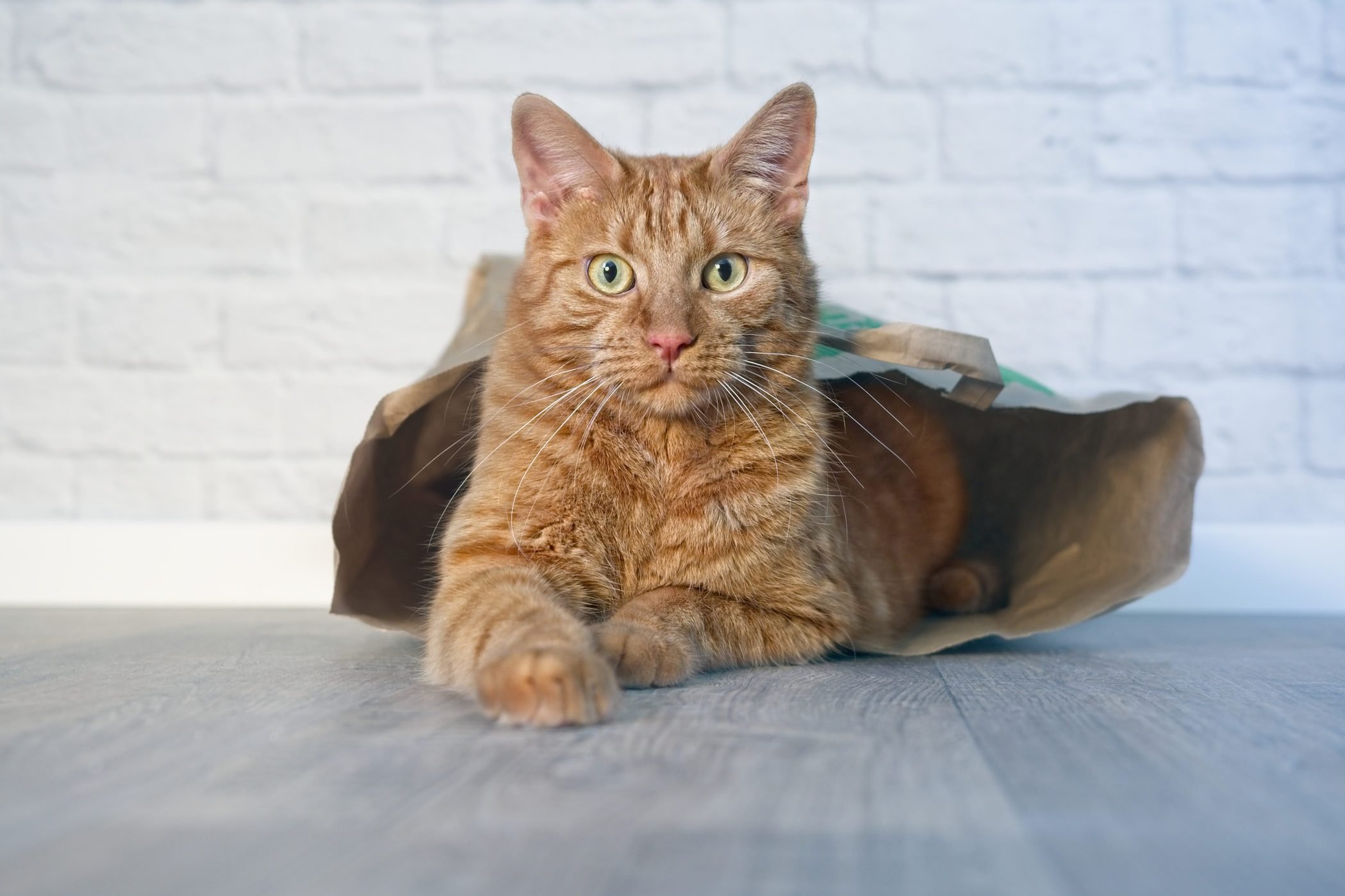
The cat’s out of the bag
Ever wondered what your cat really thinks about the things you do? Well, we’ve decided to do some digging and, with the help of some feline experts, can confidently tell you that the cat is fully out of the bag with this one. Read on to get an inside scoop into the mind of your cat—and what he or she wishes you would stop doing. After, read up on these 20 things you do that your cat actually hates.
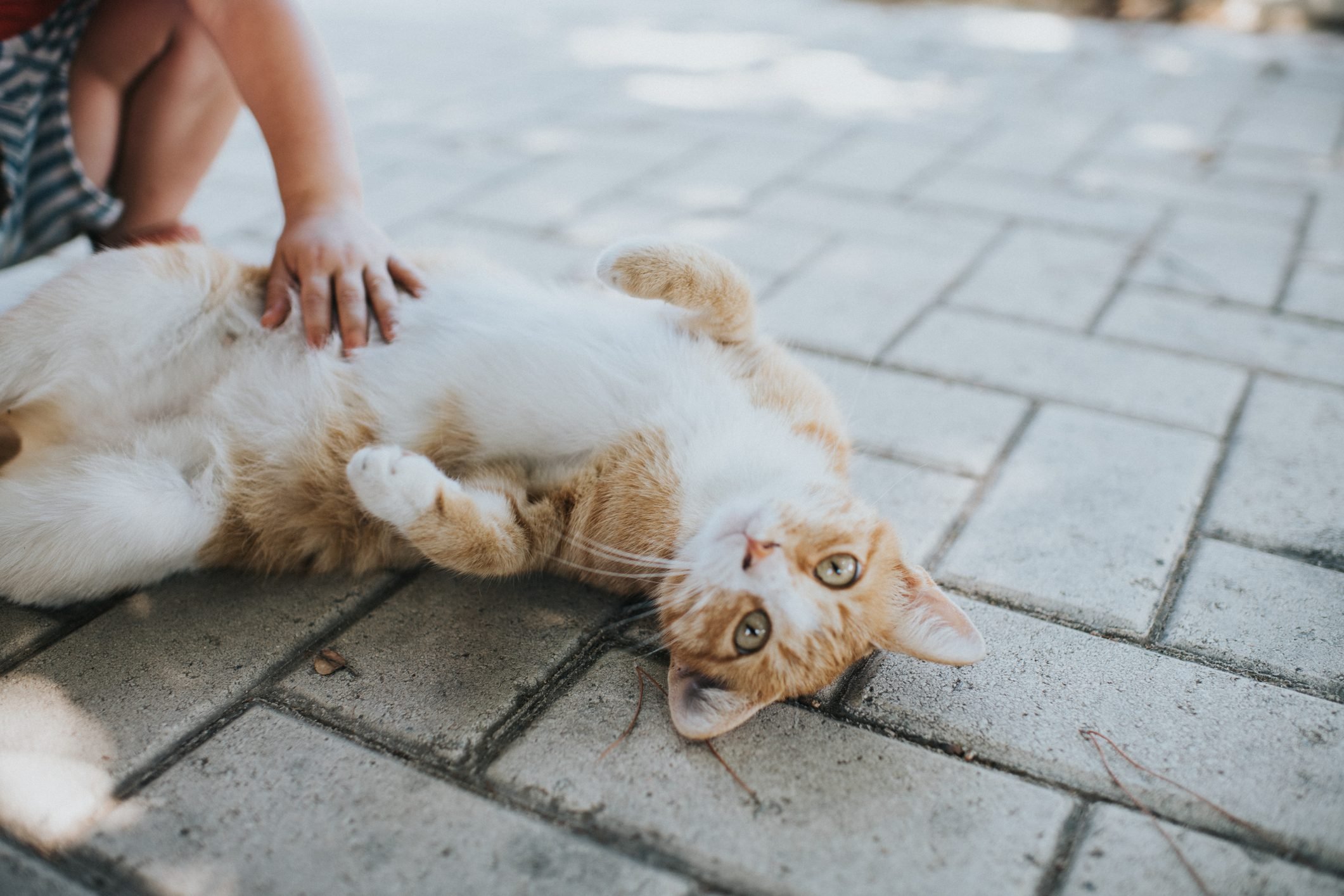
Petting on the belly
Cats have very sensitive stomachs—it goes back to their hunting and prey instincts. As Yvette Berke, outreach director for Little Angels Project, explains, cats will nip those who try to rub their tummies as an instinct to protect their vital organs. So scratching them on the belly, as you would a dog, will not have your purr-fect pal grinning like a Chesire cat. Instead, Russell Hartstein, animal behavior expert at funpawcare.com, suggests petting their cheeks and the side of their head instead. These are 15 signs your cat is secretly mad at you.

Playing loud music (or any loud sounds)
Stomachs aren’t the only sensitive things on cats. These furry friends are also extremely sensitive to noise and scent. “Any changes in these two sensory areas could cause stress and anxiety,” says Hartstein. And it’s not just music that does damage; even your own voice can get on your cat’s nerves. Talking in a high-pitched, baby voice can also be annoying to cats, according to Berke. These are 17 things your cat would love to tell you.

Creating sudden changes
If you’re a cat owner, you must know by now how much cats like their routine—and how much they hate it when their routine is disrupted. “Of course big changes like moving houses or bringing home a new pet or a baby can be stressful, but small gestures like moving their litter box to a new location in the house are just as traumatic for them,” explains Sakura Davis, a veterinary technician and veterinary consultant at CatPet.club. So what to do when change is inevitable? “When you do have to make changes in your life and theirs, do it as gradually as possible and always reassure them that everything will be okay,” says Davis. These are 14 common “facts” about cats that are actually false.

Not adapting your pet to their carrier
Cats don’t like to be constrained, so carriers are not their best friends. But for those one or two times a year that you have to transport your precious pet to the vet, it helps to make the carrier as safe and friendly-seeming as possible. “Keep the carrier in the environment for your cat to investigate on their terms. Make sure to place blankets and treats in the carrier to help adapt your cat to their carrier,” explains Steve Jolin, editor at Catological. Speaking of the vet… make sure you’re aware of these 13 silent signs your “healthy” cat is actually sick.
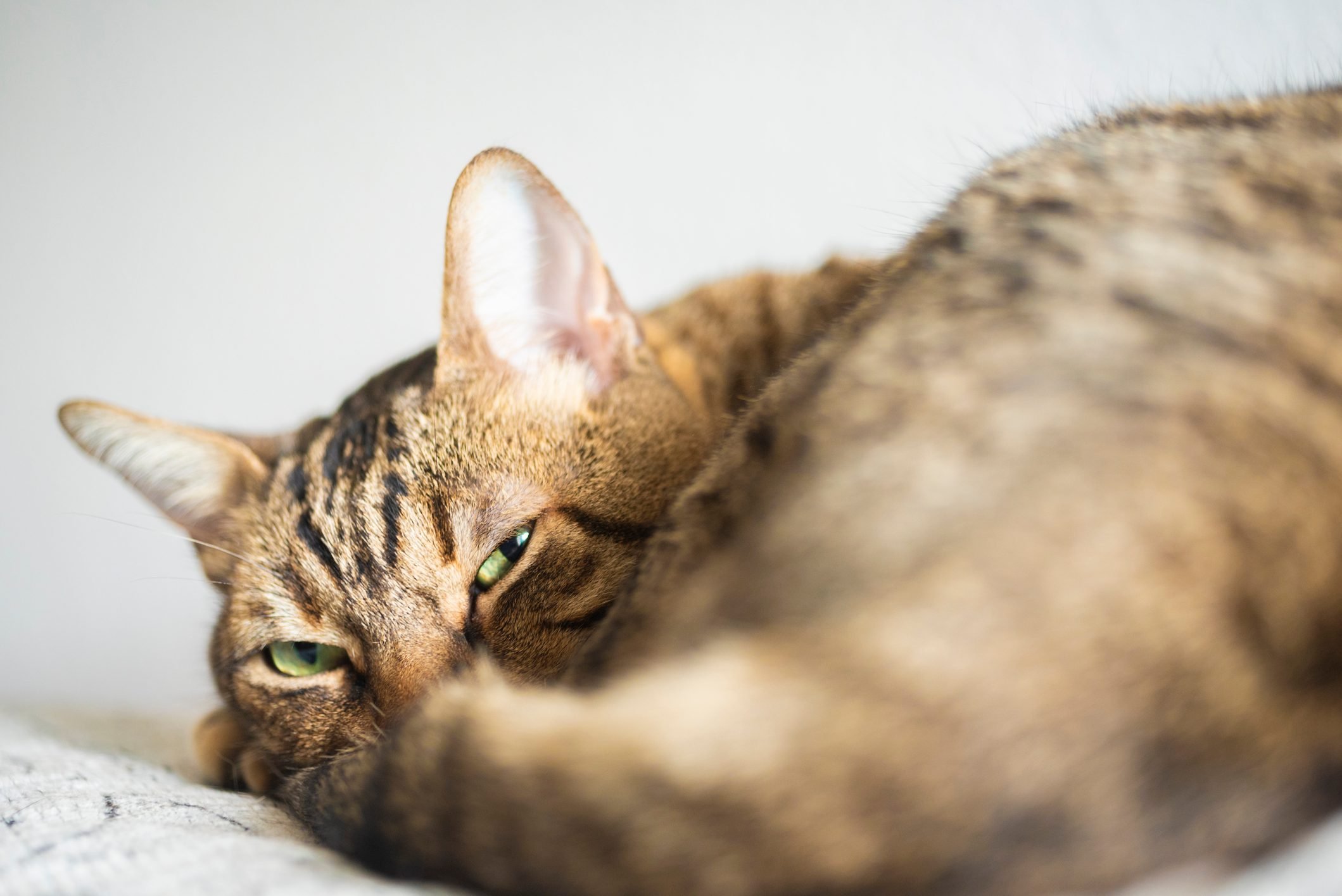
Spraying fragrance around the house
Just like their ears and stomachs, cats’ noses are extremely sensitive (sense a recurring theme?) So intense fragrance of any kind can be tough for even the fiercest of felines to handle. “[The scents] can disrupt their appetite and cause queasiness in some,” says Davis. “If you can, try to spray things in another room and away from them or stick to natural scents.” Don’t miss these cat quotes every cat owner can appreciate.
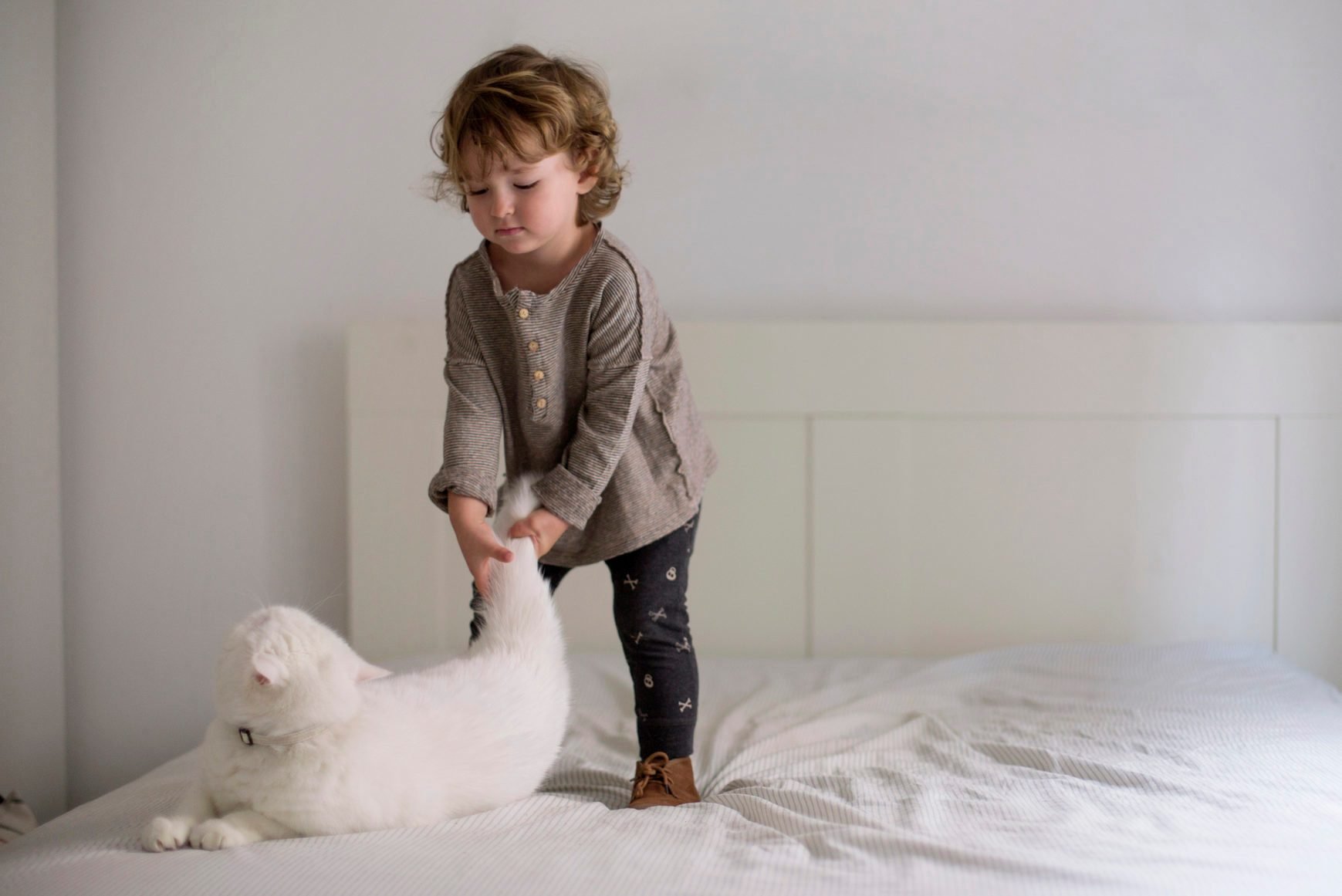
Playing with their tail
Cat tails are more than just fuzzy little playthings—in fact, they’re quite the opposite! Both tails and whiskers allow cats to sense things around them, according to Berke. So holding onto their tail can feel like an annoyance at the very least or a dangerous threat at the most. So please, leave it alone. Ever wondered why cats sleep in sinks? We found out.
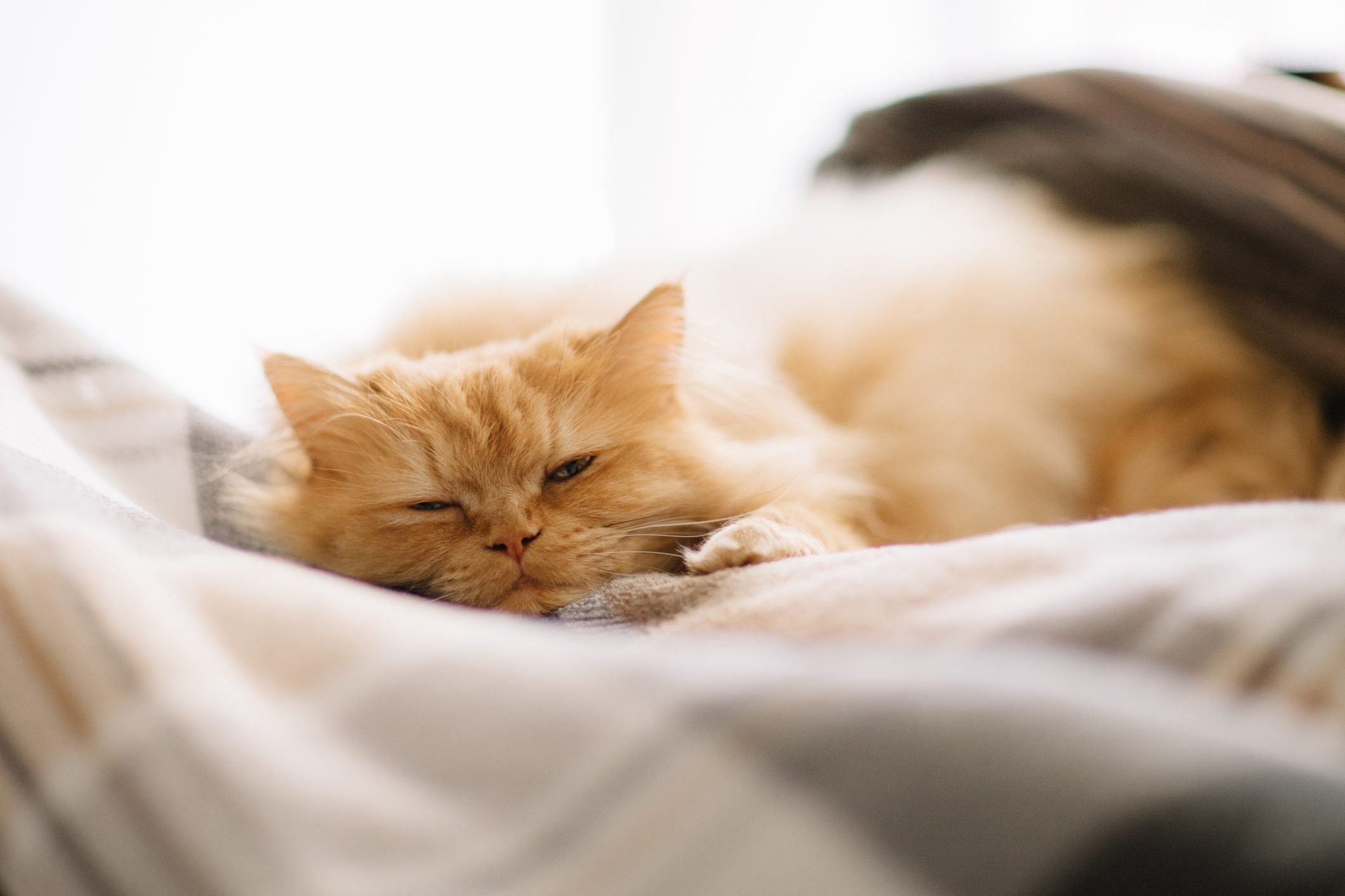
Cutting off playtime or nap time
Like humans, cats value both their playtime and sleep time. So what happens when that’s taken away from them or interrupted? You’ll end up with a very sad kitty. So don’t initiate playtime unless you can stick to it. Similarly, cats love their sleep, so try to allow them to catch their zzz’s without too much disturbance.
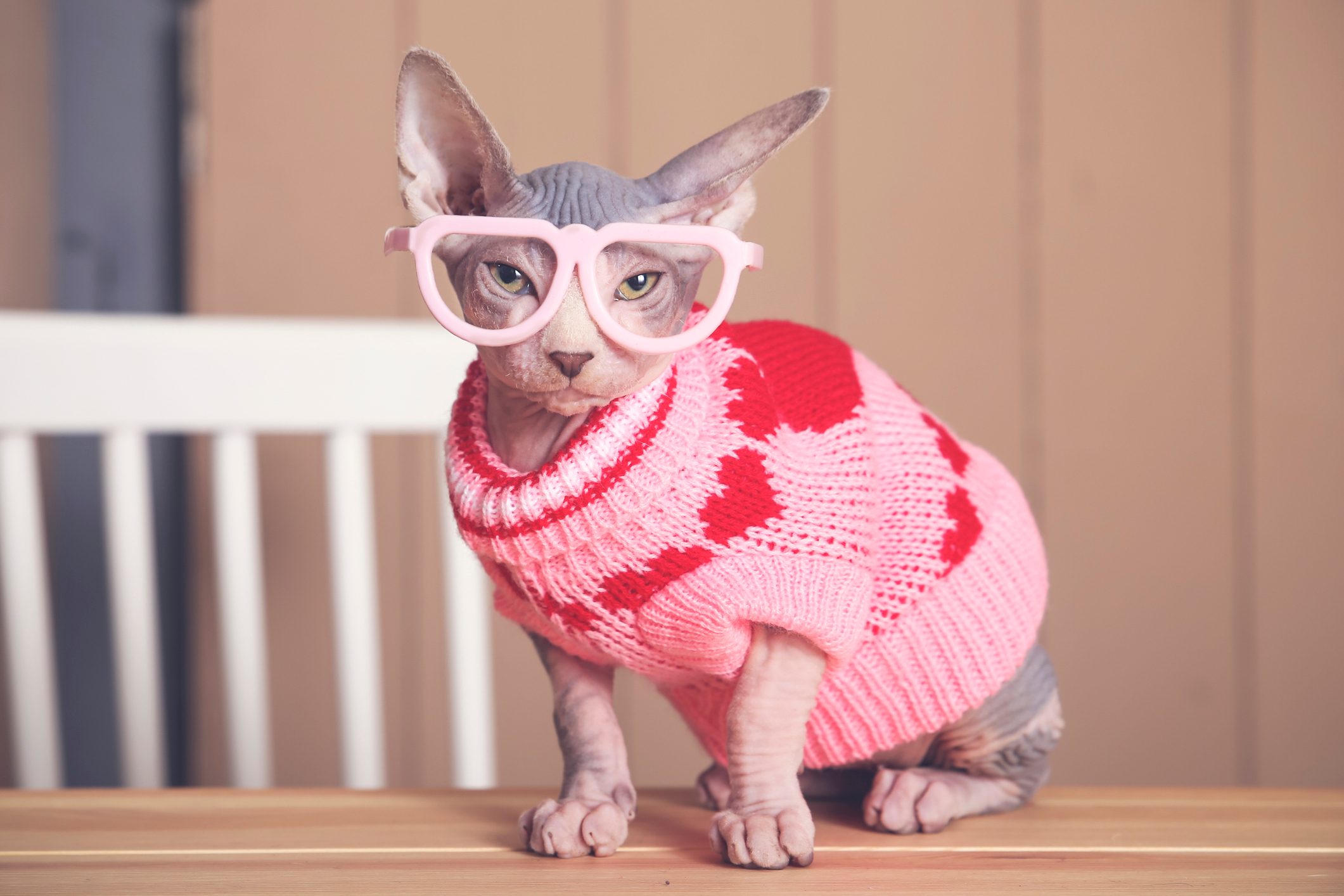
Dressing them up in outfits
Another big no-no in the feline world? Stuffing cats into play clothes. While this may entertain you, it certainly won’t make your cat feel good. Not only will it restrict their movements and make them feel uncomfortable, but it can also create a bad relationship between you and your pet. “They can form a sense of resentment towards you for forcing things on them,” explains Davis. This is definitely not what a pet owner wants to hear. Instead of dressing up your pet, laugh instead at these 35 hilarious cat memes.
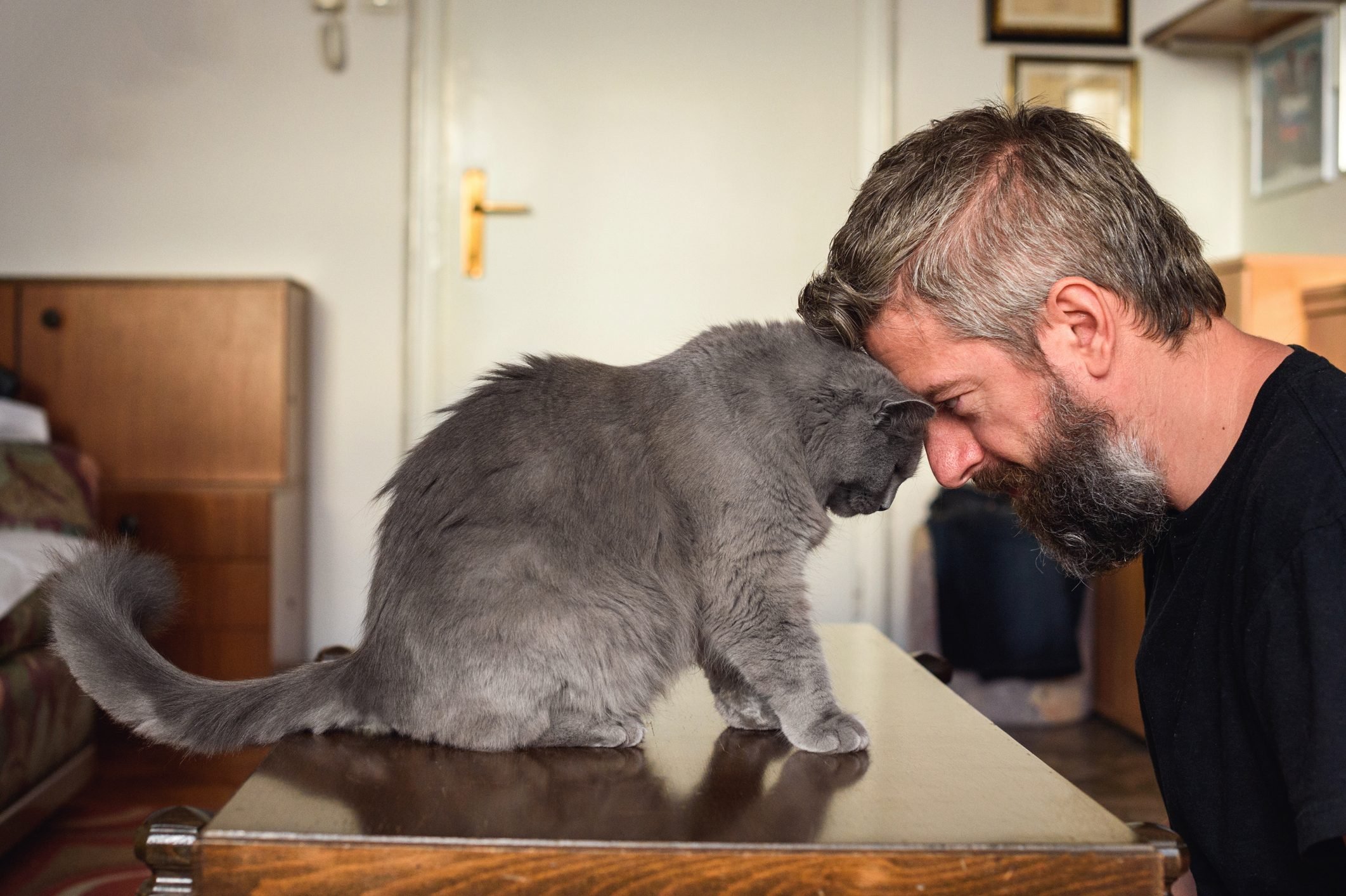
Staring contest
While staring into your cat’s eyes may seem like a harmless bit of fun, your cat certainly won’t agree. “Cats hate when you stare at them, as this is seen as a sign of dominance,” says John Cho, founder of mypetchild.com. ” It may feel like a fun game to have a staring contest, but it is really intimidating and uncomfortable for them.” Note to self: No more staring contests with cats. Find out the secrets your cat’s tail is trying to tell you.
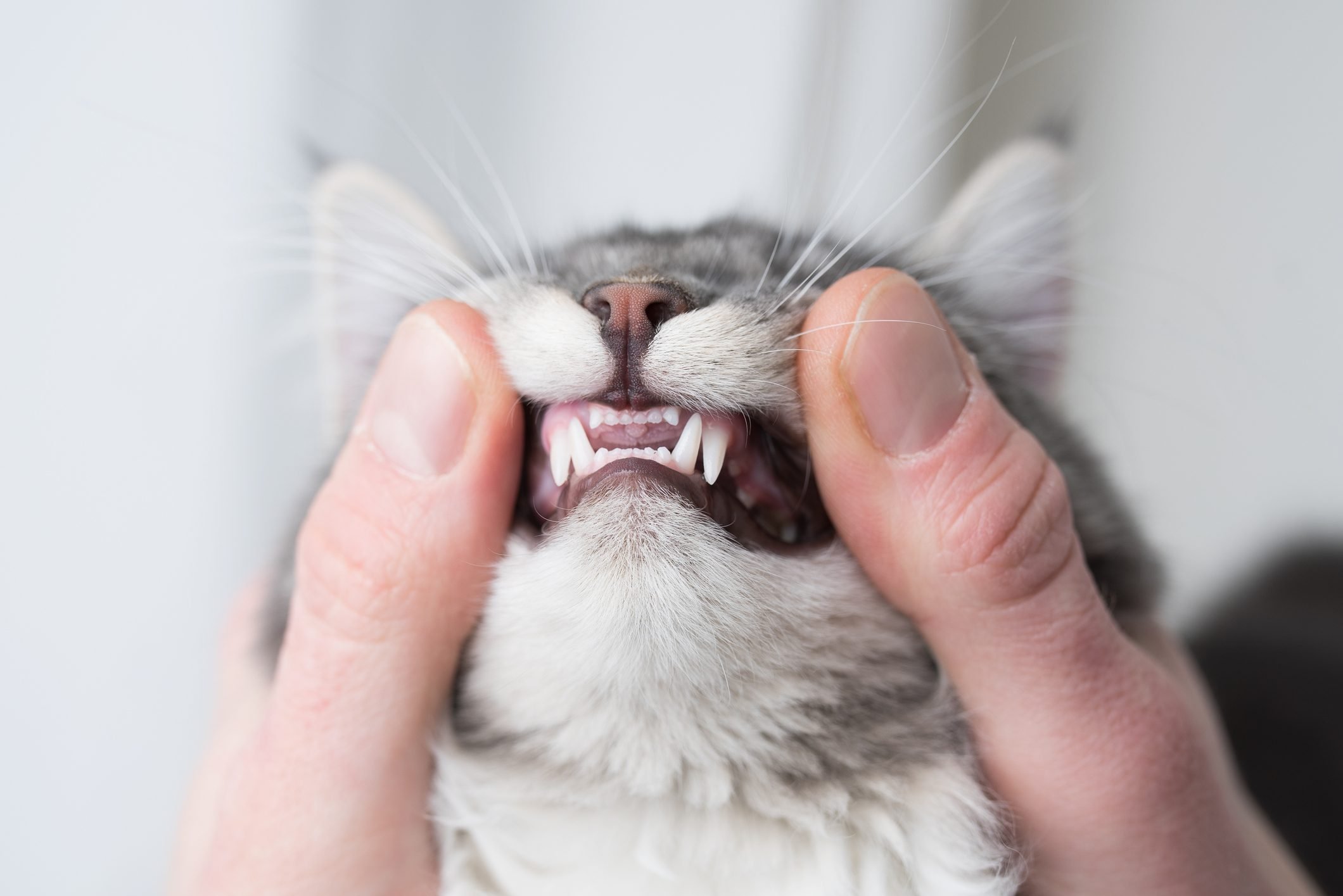
Not brushing your cat’s teeth
Make sure your furry feline keeps his or her Chesire grin clean by keeping up with dental hygiene. “Dental hygiene is a common health issue with cats that can lead to pain, loose teeth, and systemic disease,” explains Jolin. “Daily brushing of your cat’s teeth can help to decrease the risk of dental disease. Make sure to use a pet toothbrush and enzymatic toothpaste for your cat.” This is why your cat is so obsessed with your laptop.

Picking them up
Sometimes you may just want to give your pet a huge hug and cuddle. Because that’s what they’re there for, right? Well, not all the time! Often times, we hug and cuddle with our cats because we want to, not because it seems like something they want to do. So what’s the best way to approach this? “Give your cat a little space and let her make the first move,” says Mikel Delgado, a cat behavior expert with Rover. “We know from previous studies that when you let the cat initiate human interactions, those interactions last longer and are more positive.” In addition, most cats like keeping all four paws on the ground, so if they start to wiggle or act tense when you pick them up, it means they want out. Have you ever wondered why dogs chase cats?
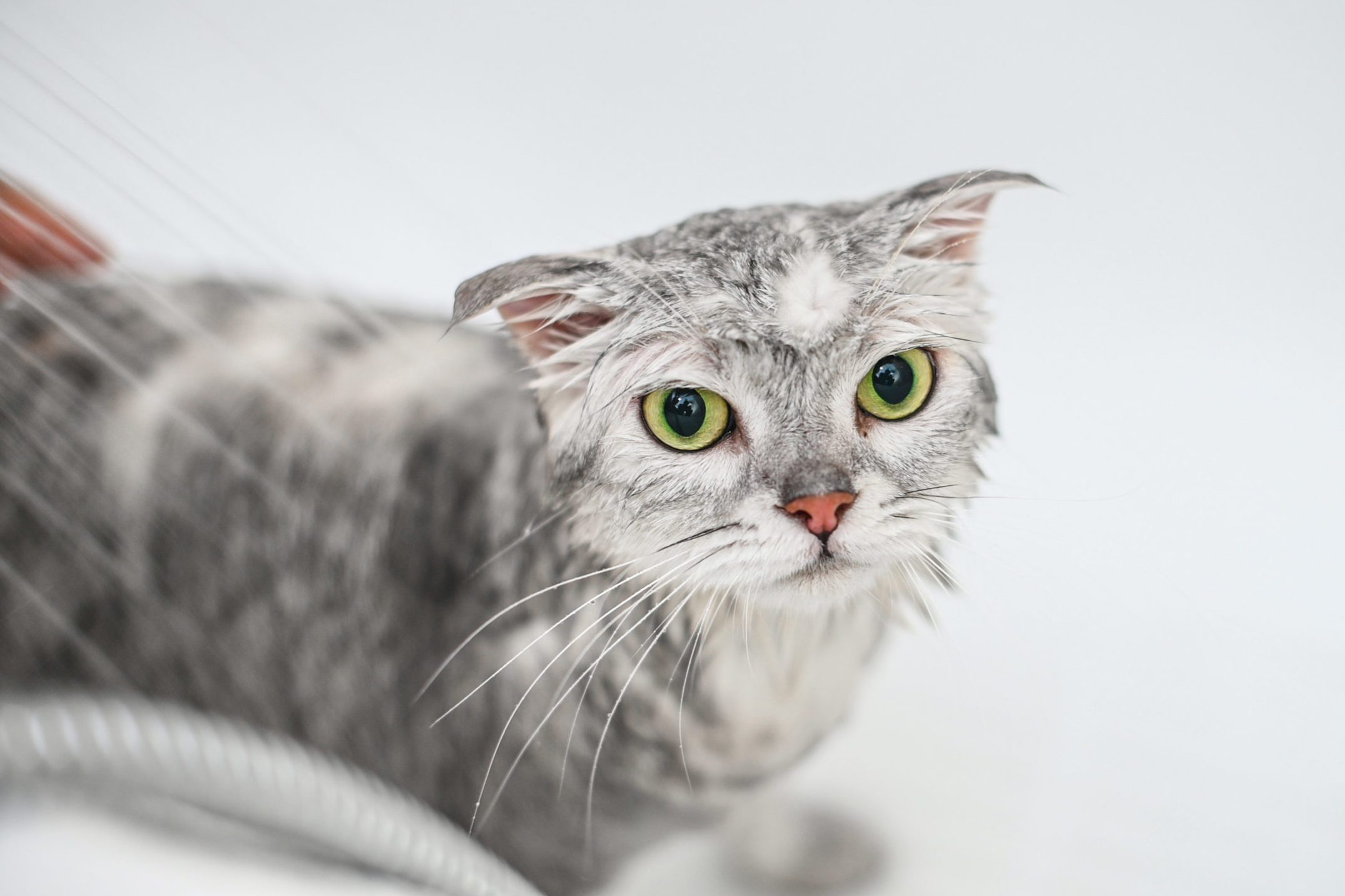
Bathing
Have you ever seen anything more uncomfortable than a cat in water? We didn’t think so. So, there’s no point in forcing your cat to take multiple uncomfortable baths, especially because cats rarely need to bath with water in the first place. “[Cats] are very efficient in grooming themselves unless they are obese, elderly, or have a medical condition that prohibits them from doing so,” says Davis. So stay clear of water for the sake of your cats and for your own sake, as well (nobody likes cat scratches!).
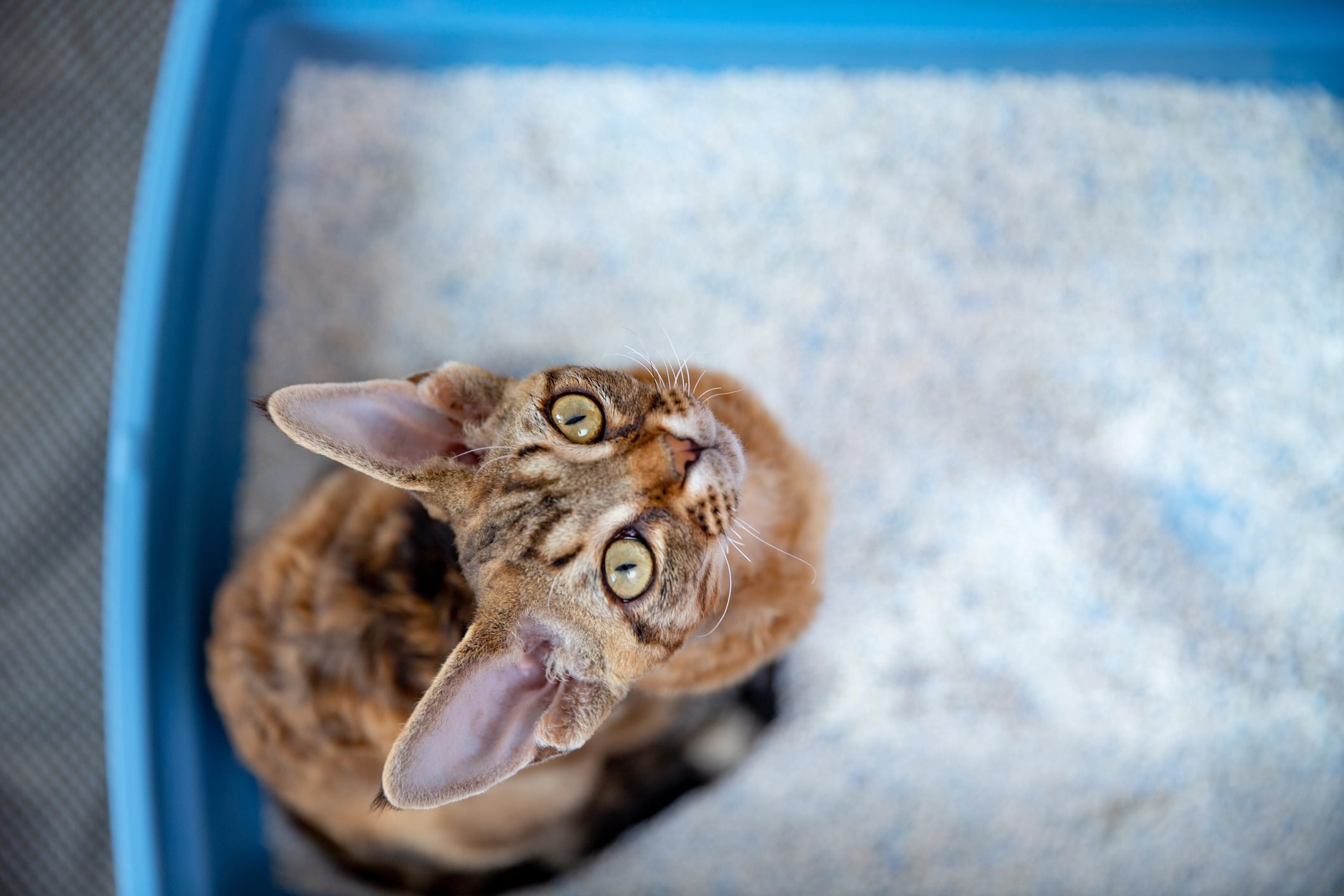
Not cleaning the litter box regularly
Continuing with the clean streak…cats are hygienic creatures that don’t enjoy soiled litter boxes. “Not routinely cleaning out your cat’s litter box can result in inappropriate urination or defecation,” says Jolin. “I recommend cleaning the box at least once or twice a day.”
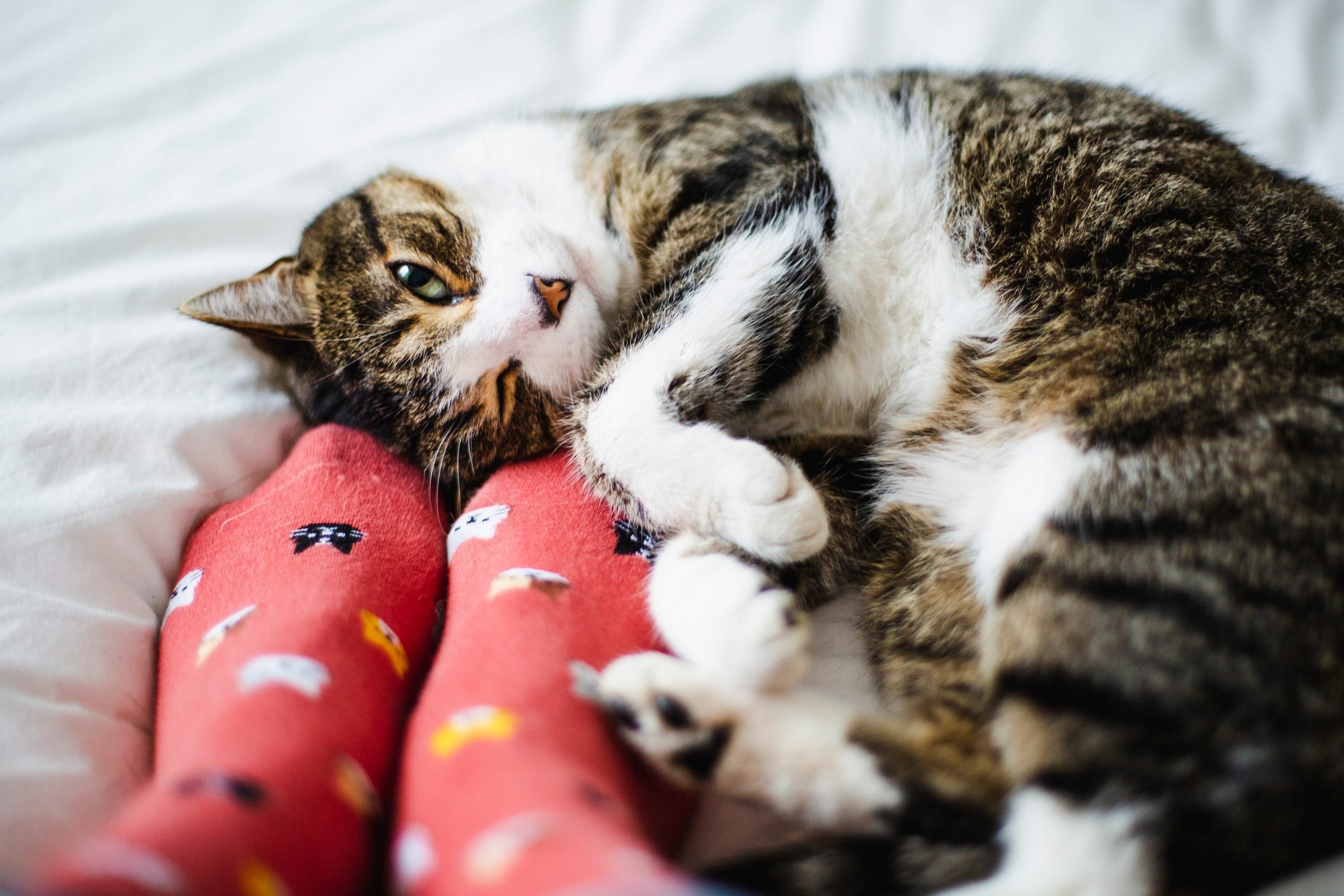
Punishing them
Not only can some forms of punishment border on abuse, but cats won’t change their behavior for the long term based on petty treatment. In fact, punishing your cat will end up doing more harm than good, as it may permanently damage the relationship you have with your furry friend. So what should you do instead? “Make sure to give them acceptable outlets for normal behaviors, such as scratching, play, and being on elevated surfaces,” says Delgado. He also stresses the importance of using positive reinforcement to reward good behavior while ignoring behavior you don’t like. “These training methods are effective for long-lasting change in your cat’s behavior while keeping your bond with your cat intact!” Next, read up on the 12 telltale signs you have a happy cat.
Sources:
- Yvette Berke, outreach director for Little Angels Project
- Russell Hartstein, animal behavior expert at funpawcare.com
- Sakura Davis, a veterinary technician and veterinary consultant at CatPet.club
- Steve Jolin, editor at Catological
- John Cho, founder of mypetchild.com
- Mikel Delgado, a cat behavior expert with Rover